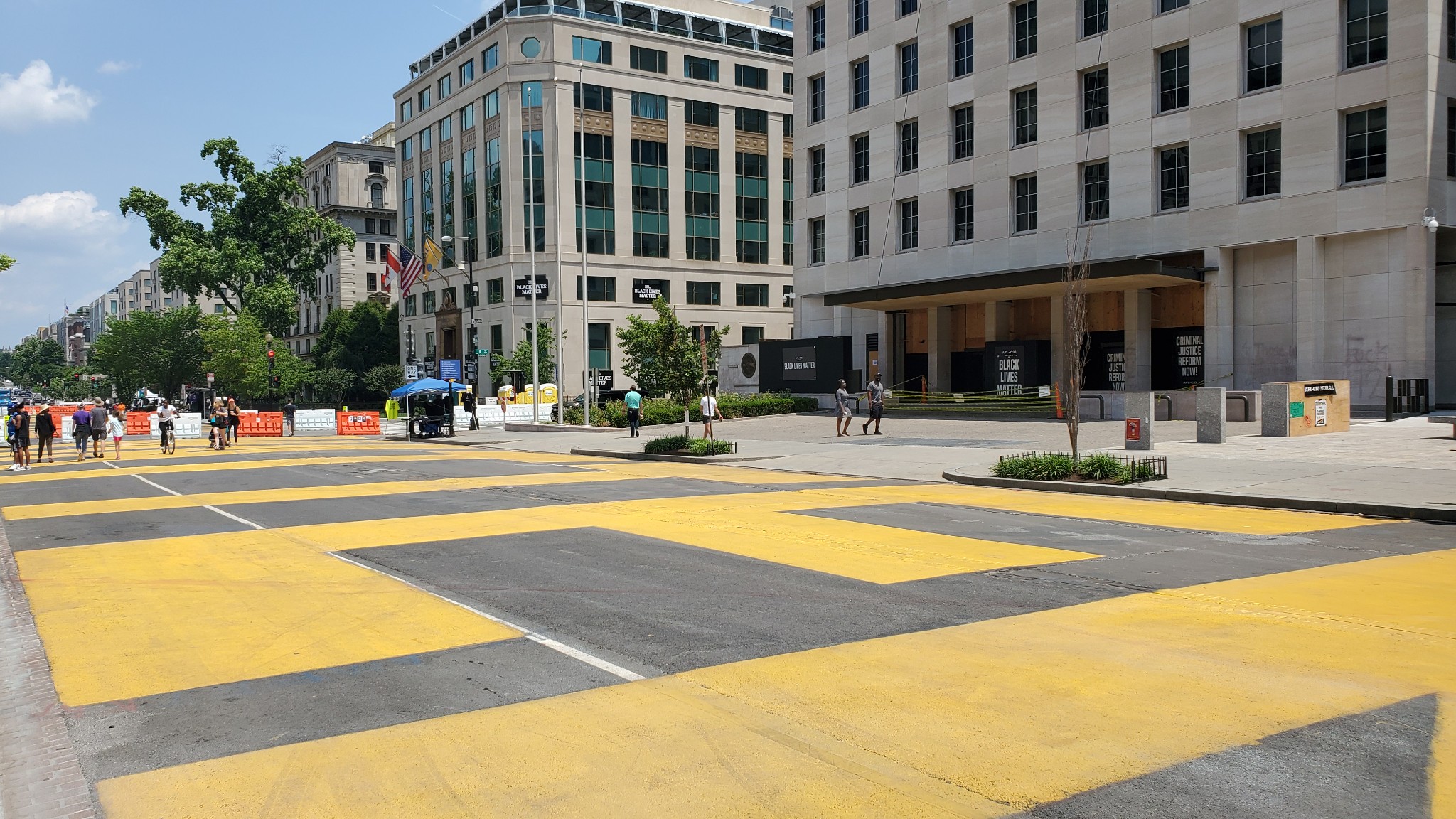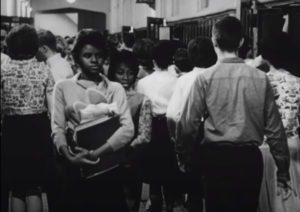
The Soft Power of American Protest
In recent weeks, the images of American protests against racial discrimination by law enforcement have been seen around the world. These images carry weight that will have strategic consequences on America’s credibility in its efforts to communicate its message to the world.
The United States is currently engaged in a global struggle over rhetoric, arguing that in the age of great power competition, the American ideals of liberty and human rights set it apart from those it opposes.
Yet what fundamentally sets a free society apart from those that are not is the right to protest. A free society, by definition, is able to speak out against and oppose the policies of the government under which it is organized—without the threat of force or disenfranchisement. This right, codified under the First Amendment to the Constitution, is one of America’s most important soft power tools.
As the United States is engaged a multi-front ideological struggle, policy makers should be conscious of the messages America’s actions are sending overseas. In trying to convince the world why the American system of government is better than those of Russia, China, or Iran, the U.S. would be wise to show the world how to respond to protest. For instance, cornering, pepper spraying, and tear gassing peaceful protesters with no route for escape sets a bad example for the world to follow. At the same time, the ability to silently kneel during our nation’s anthem is precisely what makes America great. That right is what the flag stands for. A truly free society allows this.
During the Cold War, when America was locked in an ideological battle with the Soviet Union, the treatment of Black Americans provided ample propaganda material for the Soviets to work with. Recognizing this, the U.S. Information Agency, then charged with carrying out America’s public diplomacy activities around the world, made a point of telling the story of the civil rights movement. This included documenting the 1963 March on Washington for Jobs and Freedom and creating a documentary on the 9 Black students in Little Rock whose school integration President Eisenhower famously supported with the 101st Airborne Division. Recognizing the problems that racially discriminatory policies had on America’s image around the world, and speaking about the violent reaction against racial desegregation in Little Rock, Eisenhower stated:
“At a time when we face grave situations abroad because of the hatred that Communism bears toward a system of government based on human rights, it would be difficult to exaggerate the harm that is being done to the prestige and influence, and indeed to the safety, of our nation and the world.
Our enemies are gloating over this incident and using it everywhere to misrepresent our whole nation. We are portrayed as a violator of those standards of conduct which the peoples of the world united to proclaim in the Charter of the United Nations. There they affirmed ‘faith in fundamental human rights’ and ‘in the dignity and worth of the human person’ and they did so “without distinction as to race, sex, language or religion.”

A scene from Nine from Little Rock
Indeed, America’s actions in response to the protests are used by its adversaries to ridicule the United States in front of the world. It allows them to justify their own ruthless actions against protesters in their own countries and call out American “hypocrisy.”
While the protests have drawn sharp divide in the United States, they are drawing admiration from people overseas. In many countries around the world, we have seen similar anti-racism protests crop up. Protesters in Germany carried Black Lives Matter signs. Protesters in Australia marched in support of Aboriginal people. French protesters demonstrated against police treatment of minorities. In all, at least 40 countries around the world have seen protests echoing the sentiment of their American counterparts.
If a historic goal of the United States is to promote its way of life and its culture—that copycat protests are appearing around the world are proof that people around the world are emulating the American way—that they do admire and emulate some American ideas about governance. Particularly, this means the right to protest the way they are governed. And as such, peaceful American protesters set a particularly important example for the people of non-democratic countries or nascent democracies.
While detractors may wonder why protests around the world tend to only crop up in response to America, as opposed to the clear dangers that are posed by Russia and China, the answer is simple. The world expects the best of the United States, because its founding ideals are inspiring, profound, and prevalent in the world’s consciousness. Because of America’s promise, they expect it to hold itself to account. Additionally, the example America sets matters more than those countries which do not respect human rights. Benjamin Piorgah Tetteh, a journalist from Ghana working in New York City explains:
“…the very concept that we borrowed from places like the United States has become our standard, our system of government, which we are holding our governments to, and we are demanding that democracy and true freedoms prevail not just in Ghana but across Africa. I would equally want to see more done in the United States to do just what the United States preaches and what it preaches best. If the United States will ever go telling Ghana to hold peaceful elections, if it will ever go and tell Togo to manage protests peacefully, then the United States must show an example. What happens in the United States has great ramifications on other continents.”
Foreign publics expect those ideals to be upheld. And because they believe in the enshrined American right to protest, they believe it is an effective tool to create change. Authoritarian regimes in Russia and China are unlikely to be swayed by protests—but their people can be inspired by a country that demonstrates that it listens to its people. They can choose, at great peril to themselves, to demand accountability and be the change that they hope for.
How America chooses to respond to the acts and demands of protesters will characterize its credibility in the years to come. As the United States frequently calls on foreign governments to treat peaceful protesters humanely, it must do the same in order to be credible. If the United States calls on other countries to hear the voices of their people, it must do the same at home. If the United States is going to argue it is the freest country ever created, it must respect the constitutionally guaranteed freedom of its people to protest. That’s the type of power that attracts others and earns friends.





